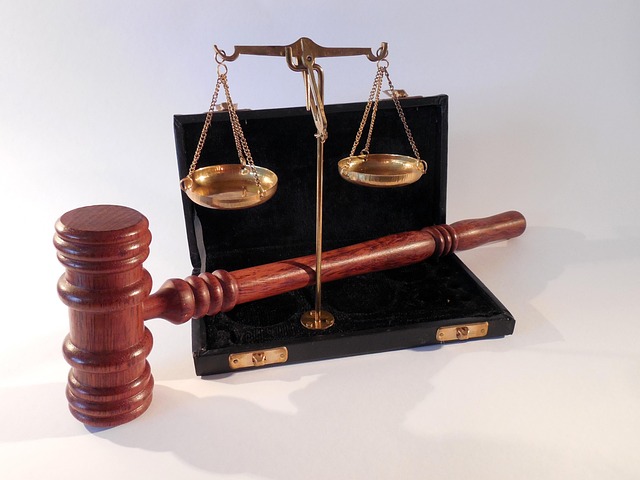Corporate Crime Investigations tackle business fraud through forensic accounting, data analytics, and witness interviews, exposing manipulations and irregularities. Key aspects include dispute resolution via mediation, arbitration, or trials, contract examination, financial record scrutiny, and communication log analysis. Identifying red flags and implementing transparent protocols helps prevent misconduct and preserve organizational reputation. Internal audits fortify organizations against crime and serve as a dispute resolution tool. A robust legal framework, strategic tactics, and proactive measures protect companies and resolve disputes effectively. Post-investigation, rebuilding trust involves addressing root causes, enhancing integrity, and implementing deterrence mechanisms to avoid future misconduct. Learn how to navigate business partner disputes successfully through these comprehensive methods.
Corporate Crime Investigations are vital in navigating the complex landscape of business operations, ensuring integrity, and upholding legal standards. This comprehensive guide delves into the intricate world of uncovering corporate frauds, identifying early red flags, and the pivotal role of internal audits in prevention. We explore effective dispute resolution strategies within legal frameworks, emphasizing post-investigation actions crucial for rebuilding trust and fostering organizational change. Discover key insights on How to Resolve Business Partner Disputes, making your business operations robust and transparent.
- Understanding Corporate Crime Investigations: Uncovering Business Frauds
- Identifying Red Flags: Early Signs of Potential Disputes and Misconduct
- The Role of Internal Audits in Preventing and Detecting Illicit Activities
- Legal Framework: Strategies for Effective Dispute Resolution with Business Partners
- Post-Investigation Actions: Restoring Trust and Implementing Change
Understanding Corporate Crime Investigations: Uncovering Business Frauds

Corporate Crime Investigations delve into complex matters of business fraud, requiring a meticulous approach to uncover hidden truths. Understanding these investigations involves recognizing the diverse nature of corporate misconduct, from financial manipulations by executives to accounting irregularities concealing illicit activities. Professionals in this field must navigate a labyrinthine landscape, where white-collar and economic crimes often leave no obvious traces. They employ sophisticated techniques, including forensic accounting, data analytics, and witness interviews, to reconstruct financial transactions and identify anomalies.
Successfully resolving business partner disputes is an integral part of these investigations. When corporate malfeasance involves multiple entities or individuals, mediation, arbitration, and even jury trials across the country may be necessary tools. By examining contracts, financial records, and communication logs, investigators can expose fraudulent schemes and hold accountable those responsible. This process not only ensures justice but also promotes transparency, fostering trust in business dealings and ultimately contributing to a more robust economy.
Identifying Red Flags: Early Signs of Potential Disputes and Misconduct

Identifying red flags is a critical step in corporate crime investigations, enabling organizations to address potential disputes and misconduct early on. While some signs may be overt, like significant financial discrepancies or abrupt changes in business practices, others are more subtle, such as escalating internal conflicts or unusual patterns in communication. Regularly reviewing contracts, financial statements, and performance metrics can help uncover these indicators.
Prompt action is key to resolving business partner disputes before they escalate. Organizations should establish clear protocols for addressing concerns, fostering open dialogue, and encouraging ethical behavior. By promoting transparency and accountability, companies can mitigate risks, avoid indictment, and maintain their reputation within the philanthropic and political communities.
The Role of Internal Audits in Preventing and Detecting Illicit Activities

Internal audits play a pivotal role in preventing and detecting corporate crime, serving as a robust shield against illicit activities within organizations. These independent assessments systematically review an company’s internal controls, risk management practices, and compliance with legal and regulatory requirements. By conducting thorough audits, businesses can identify vulnerabilities and implement preventative measures, thereby reducing the likelihood of white-collar crimes like fraud, embezzlement, and corruption.
Moreover, regular internal audits act as a powerful tool for resolving business partner disputes. When disagreements arise between companies and their partners, transparent and comprehensive audit reports can provide objective insights into operational processes. This helps in identifying the root causes of conflicts, facilitating fair resolutions that achieve extraordinary results while maintaining integrity within the philanthropic and political communities.
Legal Framework: Strategies for Effective Dispute Resolution with Business Partners

When it comes to corporate crime investigations, particularly involving business partner disputes, a robust legal framework is essential for effective dispute resolution. Companies must navigate complex regulations and legal strategies to protect their interests and secure a complete dismissal of all charges. A proactive approach involves understanding the white collar defense mechanisms available at each stage of the investigative and enforcement process.
By employing strategic legal tactics, organizations can mitigate risks, ensure compliance, and foster positive partnerships. This includes meticulous documentation, transparency in communication, and clear contractual agreements. Additionally, recognizing potential disputes early on and implementing robust dispute resolution clauses can prevent escalated conflicts. Such measures not only safeguard against legal repercussions but also promote a culture of trust and collaboration among business partners.
Post-Investigation Actions: Restoring Trust and Implementing Change

After a corporate crime investigation, restoring trust within the organization and ensuring change is implemented are crucial steps in moving forward. This involves a multi-faceted approach to address the root causes of the misconduct while fostering a culture of integrity and accountability. One key aspect is effectively resolving business partner disputes that may have arisen during the investigation. Through transparent communication and robust dispute resolution mechanisms, companies can mitigate future risks and maintain strong relationships.
The process should encompass all stages of the investigative and enforcement process, from gathering evidence to reaching resolutions. A comprehensive white collar defense strategy can help organizations avoid indictment and subsequent legal repercussions. By implementing stricter internal controls, enhancing compliance programs, and providing tailored training for employees, companies can create a robust defense mechanism that deters future misconduct. This holistic approach ensures that lessons learned from the investigation translate into tangible changes, ultimately strengthening the organization’s resilience against future criminal activities.
Corporate crime investigations are multifaceted tools for resolving business partner disputes, preventing future misconduct, and restoring organizational integrity. By understanding key indicators of fraudulent activities, leveraging internal audits, and navigating legal frameworks, businesses can effectively uncover and address hidden conflicts. Implementing robust post-investigation actions ensures not only the restoration of trust but also fosters a culture of transparency and ethical conduct, acting as a powerful deterrent for future crimes. When approached strategically, these steps provide a comprehensive roadmap for managing and preventing business partner disputes in a dynamic corporate landscape.






